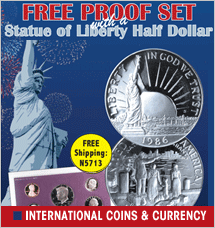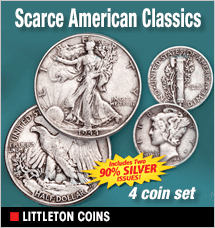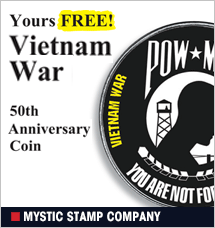
Like liberal talk shows, `60s music has quietly drifted off into the ozone of commercial radio airwaves, much to the chagrin of us first-wave boomers. In fact, we children of AM top 40 can be heard ruefully singing to ourselves “Where have you gone Joey Dee ... The Starlighters boomer nation turns it tri-focaled eyes towards you.”
I personally got the missing `60s blues last year when the last true Boston commercial `60s rock and roll station went contemporary. Goodbye to the artistry of Little Stevie Wonder. Hello to Lil Wayne. Good bye Disney Mouseketeer Annette. Hello dizzy Mouseketeer, Britney. True the radio conglomerates should be congratulated for retiring “Wooly Bully” from valuable air time. But of course, lack of boomer cultural and commercial relevance and not schlock musicality, is why `60s music on Boston radio consists of the Beatles and Red Sox anthems Sweet Caroline and Dirty Water. Once we boomers fell out of the prime 18-to-59 demographics, our music died and so did a piece of inner boomerhood – that inkling that we are still important.
So of course radio content is a double whammy for us irrelevant oldsters because the ads as well as the playlists are not boomer friendly – Stridex is favored over Celebrex. Hair club memberships are hawked all over the airways by young, prematurely balding celebs like Wes Welker, making us older boomers feel that we would be blackballed, if we tried to join up. We do avail ourselves of cruises, but the ads on radio with their tag lines “get out there” do not necessarily zero in on my cohorts’ cruise goal which could be summed up as “stay put.”
As the first generation to live on competitive green lawns, my generation knows the importance of owning a home free and clear so money can be spent on automatic sprinklers. Therefore the surfeit of mortgage company ads are of no interest to us. We don’t care that the rates are under 3% and come with no closing costs if you pay in cash, and a promise to foreclose gently.
Ironically, the premise that older boomers are not commercially viable is based on the premise that we stick with brands till death do us part. But actually marketing research has debunked this. Personally, I have the potential to be wooed by advertising. Clearly, I would give up Ivory soap, if there were additional brands in the marketplace.
What’s worse, we’ve lost music that was uniquely ours. Today Taylor Swift sings about how cool it is to be an outcast. But in the `60s we had Janis Ian’s ultra kvetch, At Seventeen, in which outcasts were real outcasts. Our `60s music was much more to the point than today’s long-winded ditties. It takes Taylor a whole meandering album to deliver teenage pain, but Lesley Gore in 1962 got right to the point when she belted out “It’s my party and I’ll cry if I want to.” Nuf said.
Radio’s vanishing `60s songs have also vanished those nostalgic moments in the car when we boomers would hone in on memories of first glomming on to the powerful teen culture. For me it was the hits of the summer of 1962, when I was an 11-year-old summer camper in a bunk with a cool counselor and more sophisticated 12 year olds, who actually knew who Little Stevie Wonder was. During rest period our counselor gave us top 40 creds via his personal record player, advising the cabin of the truly cool songs. He got me hooked on “Sealed With a Kiss” by Brian Highland. The lyrics had enough schmaltz for an 11 year old to appreciate, even though my epistolary skills, were barely good enough to furnish a post card home.
At night I cruised into teenhood via transistor static-infused renditions of the summer of ’62 hits as laid down by those classic DJs of WMEX. My preferences were mostly the dance songs – the Loco-motion, Wah Watusi, Mashed Potato Time, Monster Mash – whose choreographies I could probably not discern from the hokey-pokey. Nevertheless I remember confidently dancing with a girl at a camp social to the Bristol Stomp and assuming that because I could stomp to the beat I was “as sharp as a pistol.” My favorite song, that summer that make me feel almost 13, though, was “Sherry.” My fifth grade crush was a Sherry, so just like Frankie Valli, it was exciting to think of asking her to “come out tonight,” though what would happen after Sherry emerged from her split level, I never could imagine.
I can sadly imagine where`60s music will reside on the FM dials of the future. We will hear something like this: “That wraps it up here folks for this week’s edition of NPR’s “All Obscure Music Genres Considered.” We thank Appalachian State musicologist Fred McCoy for his exposition on original bluegrass lullabies from his book “Rockabilly Bye Baby.” Next week we have a surprisingly exciting show, from the early `60s doldrums era of Rock. We will be reviewing a history of the American garage band from its heyday of June to July 1963. The garage movement’s seminal band The Kingsmen will be our guests and we will be deconstructing their quintessential hit “Louie, Louie” with its unintelligible yet bawdy lyrics, that is said to be the inspiration for Ke$ha and the Macarena song.”
Bill Levine is an IT professional, aspiring humorist and confirmed freelance writer from Belmont, Massachusetts.



























































